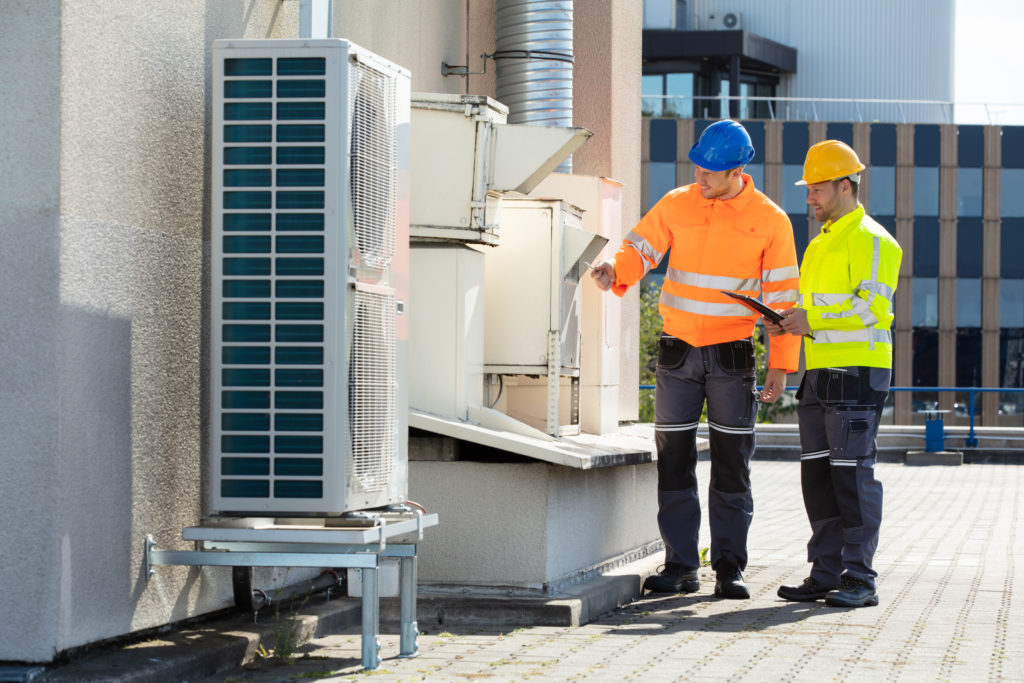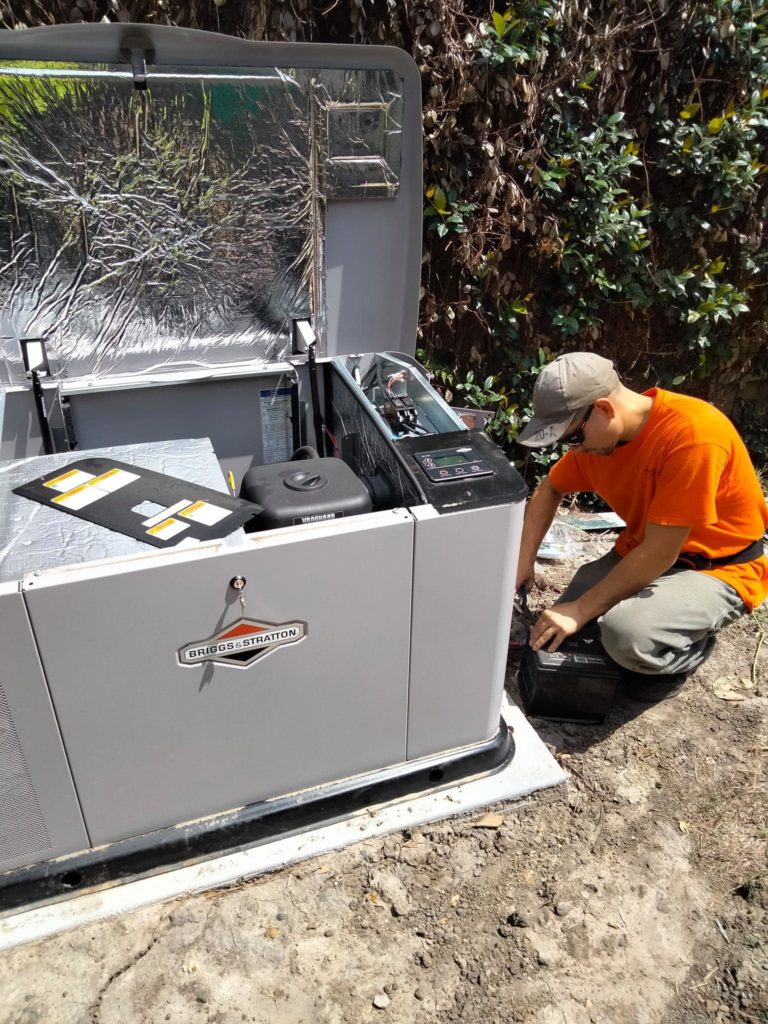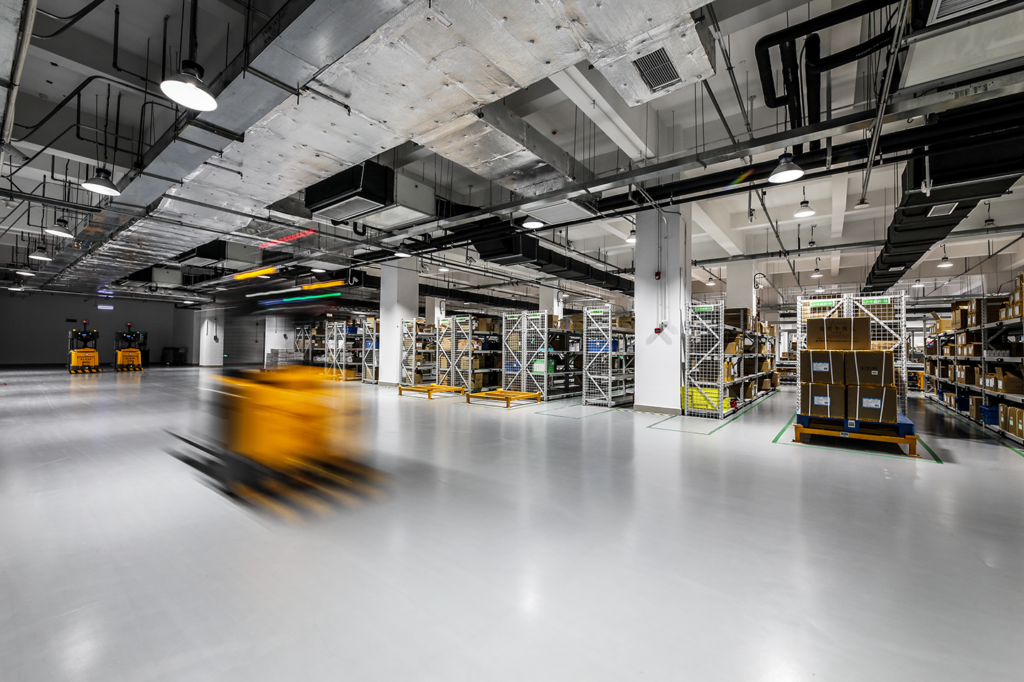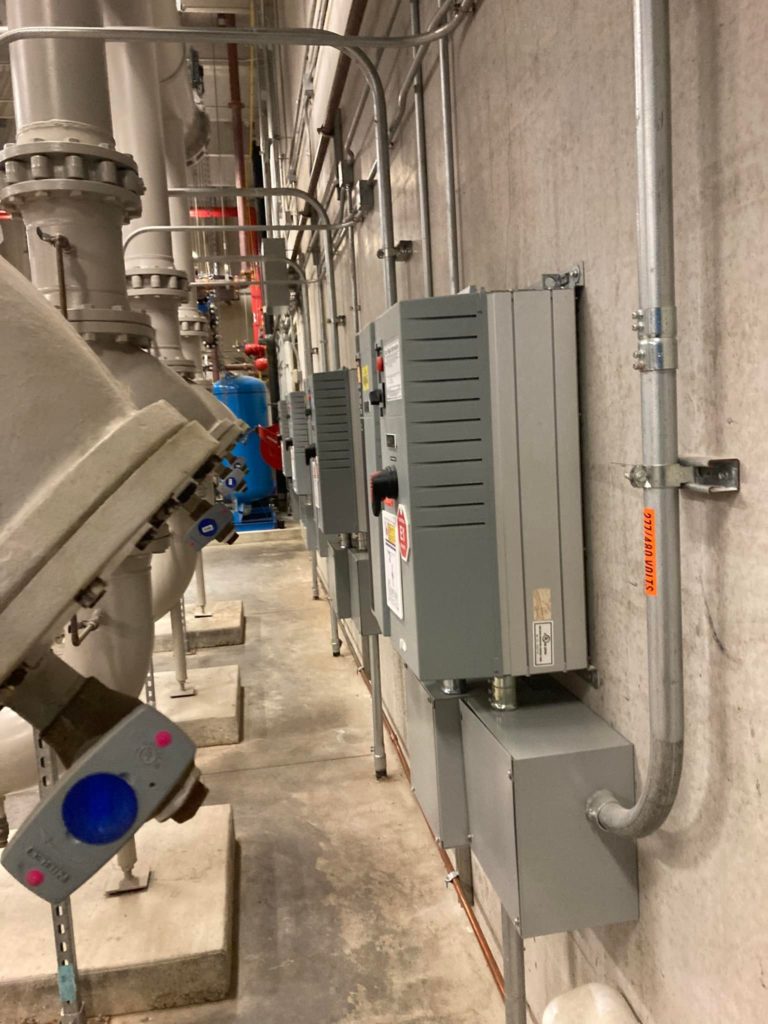
12 Jul Commercial vs. Industrial Electricians: What’s the Difference?
Electricians play a crucial role in our modern society, ensuring that homes, businesses, and industries have safe and reliable electrical systems. However, not all electricians are the same. The field of electrical work is broad, encompassing several specialties, each with unique skills and requirements. Two of the most prominent specialties are commercial and industrial electricians. Understanding the differences between these two can help you make more informed decisions whether you’re a business owner, a property manager, or someone considering a career in electrical work.
Commercial Electricians
Commercial electricians focus on electrical systems in commercial buildings. These can include offices, retail stores, restaurants, hotels, and other establishments that do not involve manufacturing or heavy industrial processes.

Key Responsibilities
- Installation and Maintenance: Commercial electricians install and maintain electrical systems within commercial buildings. This includes wiring, lighting, and electrical outlets. They ensure that these systems are up to code and functioning correctly.
- Lighting Systems: One of the primary tasks for commercial electricians is installing and maintaining lighting systems. This can range from standard fluorescent lighting in offices to more complex systems in retail environments designed to enhance the shopping experience.
- Power Distribution: They work on power distribution within buildings, ensuring that the power is adequately distributed to various parts of the building. This involves working with circuit breakers, transformers, and other electrical components.
- Safety and Compliance: Commercial electricians ensure that all electrical systems comply with local, state, and federal codes. This includes regular inspections and upgrades to maintain safety standards.
- Emergency Repairs: When electrical systems fail, commercial electricians are often called in for emergency repairs. They need to diagnose and fix problems quickly to minimize downtime for businesses.
Skills and Training
Commercial electricians typically undergo extensive training, which includes:
- Apprenticeships: Most commercial electricians start with an apprenticeship, where they learn on the job under the supervision of experienced electricians.
- Classroom Education: This includes courses on electrical theory, safety practices, and local electrical codes.
- Licensing: In most areas, commercial electricians must be licensed. This usually involves passing a comprehensive exam.
Work Environment
Commercial electricians often work indoors, but their work can take them to a variety of locations within a building. They may work in cramped spaces, such as crawl spaces or above ceilings, and sometimes need to work outdoors on rooftop units or exterior lighting systems.

Industrial Electricians
Industrial electricians, on the other hand, specialize in electrical systems in industrial settings. These settings can include factories, manufacturing plants, chemical plants, and other facilities involved in production.
Key Responsibilities
- Heavy Machinery: Industrial electricians are responsible for installing, maintaining, and repairing electrical components in heavy machinery and industrial equipment. This can include motors, generators, and robotics.
- Power Systems: They work on complex power systems that may involve high-voltage components and advanced electrical systems. This includes ensuring that power is distributed efficiently and safely throughout a facility.
- Control Systems: Industrial electricians often work with control systems, which are used to operate machinery and production lines. This can include programmable logic controllers (PLCs) and other automated systems.
- Maintenance and Repairs: Regular maintenance is a significant part of an industrial electrician’s job. They must ensure that all systems are running smoothly to prevent costly downtime. When breakdowns occur, they diagnose and fix the problems quickly.
- Safety and Compliance: Like commercial electricians, industrial electricians must ensure that all electrical systems comply with safety standards and regulations. Given the nature of industrial settings, this often involves more stringent safety protocols.
Skills and Training
The training for industrial electricians is similar to that of commercial electricians but often includes additional specialized training:
- Technical Education: Industrial electricians usually receive more in-depth training on working with industrial machinery and control systems.
- Specialized Apprenticeships: Apprenticeships for industrial electricians are tailored to the specific needs of industrial settings, often focusing on high-voltage systems and heavy machinery.
- Licensing and Certification: They must also be licensed and may need additional certifications depending on the complexity of the systems they work with.
Work Environment
The work environment for industrial electricians can be quite different from that of commercial electricians. They often work in large industrial settings, which can be noisy and involve working with heavy machinery. This can sometimes mean working in challenging conditions, such as high heat or around hazardous materials.

Comparing Commercial and Industrial Electricians
While both commercial and industrial electricians work with electrical systems, their specific tasks, environments, and training can differ significantly.
Complexity of Systems
- Commercial: The systems in commercial buildings are generally less complex than those in industrial settings. They involve standard lighting, power distribution, and basic electrical maintenance.
- Industrial: Industrial electrical systems are typically more complex, involving high-voltage components, sophisticated machinery, and control systems. This requires a deeper understanding of advanced electrical principles.
Work Environments
- Commercial: Commercial electricians work in a variety of indoor environments, ranging from office buildings to retail stores. Their work is often less physically demanding than that of industrial electricians.
- Industrial: Industrial electricians often work in more challenging environments. This can include large factories, power plants, and other industrial settings where safety is a significant concern.
Training and Skills
- Commercial: Training for commercial electricians focuses on electrical theory, safety, and the specific needs of commercial buildings.
- Industrial: Training for industrial electricians includes all the aspects of commercial training, with additional focus on high-voltage systems, industrial machinery, and automated control systems.
Safety Considerations
- Commercial: Safety is always a concern, but the hazards are generally fewer and less severe compared to industrial settings.
- Industrial: Safety is paramount, given the potential for more serious hazards such as high-voltage shock, machinery accidents, and exposure to hazardous materials.

Job Demand and Opportunities
Both types of electricians are in demand, but the specific needs can vary by region and industry. For example, urban areas with a lot of commercial buildings might have a higher demand for commercial electricians, while regions with a strong manufacturing base might need more industrial electricians.
Your Local Electrician
Choosing between a commercial and industrial electrician often depends on the specific needs of the project and the environment in which the work will take place. Both play essential roles in keeping electrical systems safe, efficient, and up to code, but their areas of expertise are distinct.
Understanding these differences can help business owners and managers hire the right type of electrician for their needs. It can also help those considering a career in electrical work to choose the right path based on their interests and strengths.
If you are in the Houston area and need electrical services, whether for your home, business, or industrial facility, Brotherly Love Electric is here to help. We provide residential, commercial, and industrial electrical services, ensuring that all your electrical needs are met with professionalism and expertise. Contact Us.

